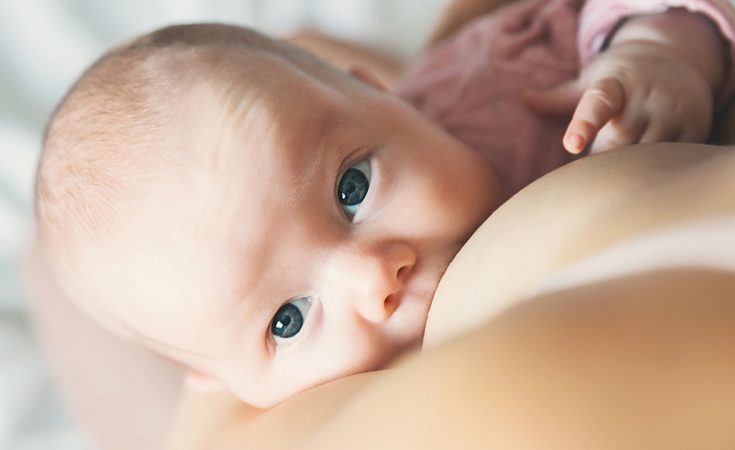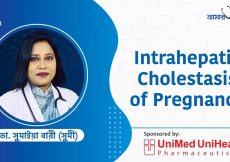
1 in 8 women will be diagnosed with breast cancer during their lifetimes. According to UT Southwestern Medical Center, 1 in 3000 pregnant folks will get a breast cancer diagnosis, and breast cancer is the most prevalent type of cancer diagnosed in pregnancy, during postpartum, and in the first year after giving birth.
These are some scary and sobering statistics. Thankfully, these days, there are many effective ways to treat cancer, and survival rates are often high, depending on the type of cancer and how much it has spread. Still, living with and treating breast cancer is a physically and emotionally grueling experience.
If breast cancer enters your life while you are a breastfeeding parent—whether you face a potential diagnosis, get diagnosed, or begin treatment—you will be dealing with a very intense and often traumatizing experience.
After all, breastfeeding and caring for young children is challenging enough. Having to contend with a health crisis on top of that can be extremely stressful.
But knowledge is power, and the more you know about breastfeeding and breast cancer, the better able you will be to face the experience head on.
Here are four things to know about breastfeeding and breast cancer:
Most Diagnostic Procedures For Breast Cancer Are Breastfeeding Safe
If breast cancer is suspected, and you need to get a battery of tests to confirm or deny this, you will likely be able to continue breastfeeding during this time.
According to the Academy of Breastfeeding Medicine, all radiologic diagnostic tools are safe while you are breastfeeding. This includes mammograms, ultrasounds, and CAT scans. However, sometimes it can be hard to read test results while you are breastfeeding, due to the density of your breast tissue and the milk in your breasts. It’s often recommended that you drain your breasts before these procedures.
Needle aspiration is safe during breastfeeding, and should not lower your milk production. Getting a biopsy while breastfeeding is safe, but depending on where the incision is made, milk production could be impacted.
You should discuss the pros and cons of biopsy with your healthcare provider and discuss ways to minimize milk production impacts. You will also need to adjust your breastfeeding position so you don’t put pressure on the incision as it heals.
Some Breast Cancer Treatments Require Temporary Weaning
If you end up needing treatment for breast cancer while you are breastfeeding, you should expect some interruptions to your breastfeeding experience. These may be temporary, and many folks decide to pump and dump during treatments, and then resume breastfeeding.
But deciding to wean while you are undergoing breast cancer treatments is a perfectly good option as well. It really depends on what makes sense for you and your life, and what your gut is telling you. There are no wrong answers—you need to do whatever works for your mental and physical health.
It is safe to breastfeed after breast surgery. If you’ve gotten a partial mastectomy, for example, you can still breastfeed from your remaining breast.
Radiation therapy may be safe, though you should ask your doctor about the particular radiation therapy you are receiving. Usually, you can breastfeed from the breast that did not receive radiation. Keep in mind, though, that radiation therapy can lower your milk supply.
Unfortunately, chemotherapy is pretty much always contraindicated while you are breastfeeding. You will need to temporarily wean during this time. You can pump to keep your milk supply up so that you will be able to resume breastfeeding after chemotherapy is complete. But you’ll need to pump and dump, as this milk won’t be safe for your baby.
Talk to your doctor about other treatments you may be receiving, as some will be safe, and others will not. Don’t hesitate to get a second opinion, if you still have concerns.

Breastfeeding Parents May Be More Likely To Detect Breast Cancer
Breastfeeding is a time when you become very intimately involved with your breasts! You are constantly grabbing and feeling them to gauge for fullness, and trying to figure out which breast to offer your baby next.
So it makes sense that breastfeeding parents are more likely to notice changes in their breasts that might indicate cancer. You should definitely take any lumps or other changes in your breast seriously. Keep in mind, though, that sometimes things like plugged ducts and mastitis may mimic other breast lumps.
If a lump doesn’t decrease after you empty your breasts, if it continues to grow, or if you have any suspicion that you might be dealing with something out of the ordinary, visit your doctor ASAP.
You should also visit your doctor if your breast skin changes color, starts to dimple, or begins to resemble the texture or color of orange peel, as those are signs of inflammatory breast cancer.
Breastfeeding Lowers Your Risk Of Breast Cancer
Okay, so here’s some good news, finally! Breastfeeding itself lowers your overall risk of breast cancer. Experts think this has to do with hormones, as breastfeeding suppresses your estrogen levels (that’s part of why you don’t get a period when you are first breastfeeding). The less estrogen you are exposed to during your lifetime, the less likely you are to develop breast cancer. Breastfeeding also protects you against ovarian cancer. Woot woot!
If you are a breastfeeding parent who is faced with a potential breast cancer diagnosis, or are facing treatment for breast cancer, it’s likely that you are feeling overwhelmed. (That’s putting it mildly!)
One of the overwhelming things about it is that there is so much unclear and conflicted information out there about managing breast cancer while you are breastfeeding. I urge you to make sure that you are consulting reputable sources, such as the Academy of Breastfeeding Medicine and the CDC. Talk to a lactation consultant or a breastfeeding-friendly pediatrician if you need further clarification.
Maybe most importantly, if you are a breastfeeding parent dealing with breast cancer, please take your mental health as seriously. You are likely going to be facing a very tough road ahead, and you are not meant to do it alone. Talk to your healthcare provider about mental health support, including individual therapy and breast cancer support groups.


































